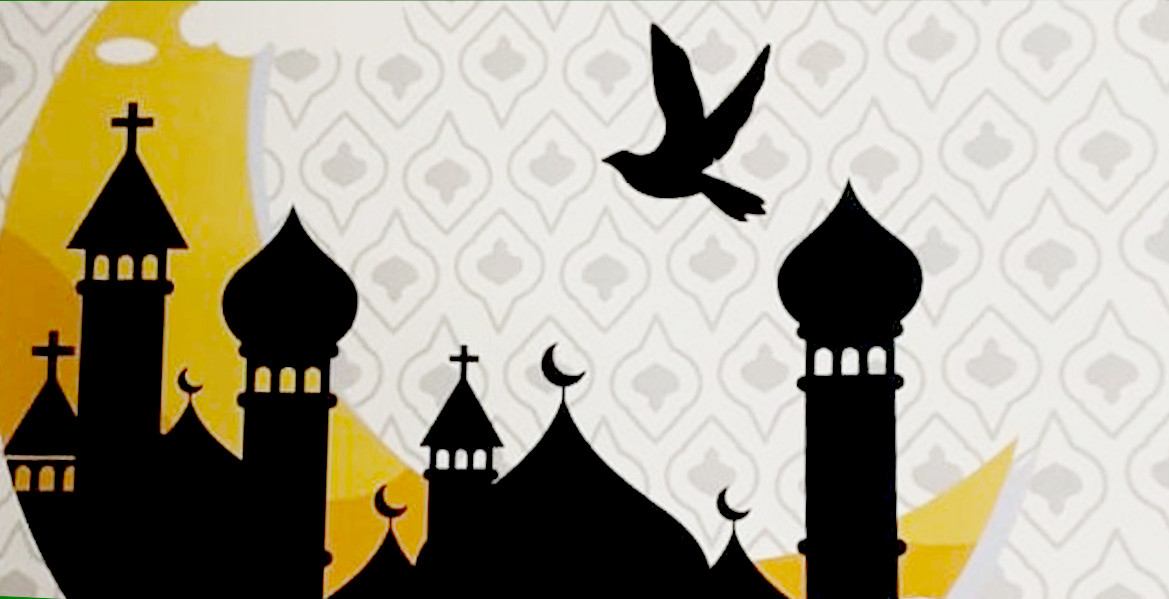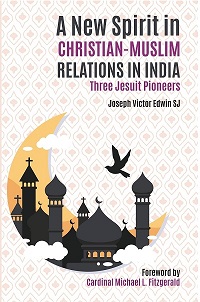 Indian Jesuit Fr Victor Edwin SJ has written a new book that explores the contributions of three Jesuit pioneers in transforming Christian-Muslim relations in India: Victor Courtois, Christian Troll, and Paul Jackson.
Indian Jesuit Fr Victor Edwin SJ has written a new book that explores the contributions of three Jesuit pioneers in transforming Christian-Muslim relations in India: Victor Courtois, Christian Troll, and Paul Jackson.
 In “A New Spirit in Christian-Muslim Relations in India: Three Jesuit Pioneers”, Fr Edwin details the kind of Christian-Muslim dialogue practised by these Western scholars, one that is based on profound insight and mutual respect.
In “A New Spirit in Christian-Muslim Relations in India: Three Jesuit Pioneers”, Fr Edwin details the kind of Christian-Muslim dialogue practised by these Western scholars, one that is based on profound insight and mutual respect.
For the author, Fathers Courtois, Troll, and Jackson triggered a new departure in Christian-Muslim relations in India by disengaging themselves from the polemics and debates of the past, and reaching out to Muslims, loving and respecting them and their religious convictions, and gaining a deep knowledge of the intellectual and spiritual riches of Indian Muslims.
“Courtois strongly felt that Christians should reach out to “Muslims NOT as adversaries but as brothers [and sisters],’” says Fr Edwin.
A Belgian, Courtois (1907-1960) lived and worked as a missionary in India. His publication, “Notes on Islam” published in 1946 promoted a better understanding of Islam among Christians, and highlighted certain points of possible rapprochement.
Troll, who is from Germany, was a Professor of Islamic Studies at Vidyajyoti College of Theology, Delhi for 12 years. Until 2005, he was a member of the Pontifical Council for Interreligious Dialogue.
“[He] discerned diligently the ways of God in the life of the Church and in the lives of Muslims, their cultures, and their faith. Discernment is an important tool for any serious engagement with people of other religions,” says Fr Edwin.
Australian Paul Jackson came to India in 1960, where he lived until his death in 2020. His thesis on the Sufi saint Sharafuddin Maneri, and his translation and commentaries on Maneri’s spiritual letters endeared him to many Muslims and led him to advocate for the mutual understanding between Christians and Muslims.
“The significance of their life and work emerges from the high level of integration they have attained in living as witnesses amidst Muslims,” says Fr Edwin. “[They] have shown the way to build bridges between the followers of these two religions and to live in harmony and peace, and contribute to a harmonious nation.”
In his review, Fr Poulose Mangai SJ, professor at Vidyajyoti College of Theology, writes that the book should be read and reflected on in the spirit of the Second Vatican Council and the papal magisterium. “Courtois anticipated the vision of Vatican II by a few years. Troll and Jackson imbibed the Council’s spirit of openness, trust, and freedom. All three were led to discover the goodness, beauty, truth, and wisdom of Islam and its spiritual traditions,” he writes.
Fr Francis X Clooney SJ, Parkman Professor of Divinity at Harvard University, notes that besides the book’s contribution to understanding the history of Catholic-Muslim relations in India in the 20th and 21st centuries, the fact that Fathers Courtois, Troll, and Jackson are Jesuits “fills an important area in the history of the Jesuit encounter with the great traditions of the world and in South Asia”.
This could be especially important for Jesuits in Asia Pacific, where dialogue with people of other faiths forms a major dimension of the Jesuit commitment. The Jesuit Conference of Asia Pacific works closely with the Jesuit Conference of South Asia in the study of Islam and in solidarity actions with Muslims. As a network, they engage in joint research undertakings that promote Christian-Muslim relations.

